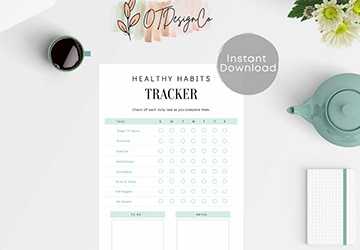How to Build Healthy Habits That Last: A Comprehensive Guide
Developing healthy habits isn't just a temporary change; It's about creating sustainable practices contributing to your overall well-being. Whether you want to improve your physical fitness, eat healthier, or improve your mental health, the key is to develop habits that will stand the test of time. This comprehensive guide explores practical strategies to help you create lasting healthy habits and help you achieve a more fulfilling and balanced lifestyle.

1. Start small and work your way up:
Mini Habits: Start with mini habits—small, manageable actions that are easy to incorporate into daily life. For example, if you want to exercise regularly, start by exercising for five minutes a day.
Incremental change: gradually increasing the complexity and duration of a habit over time. This step-by-step approach can help your body and mind adapt without feeling overwhelmed.
2. Set clear and achievable goals:
Specific and Realistic Goals: Well-defined and realistic goals. Instead of setting a vague goal like "exercise more," set a particular goal such as "walk 30 minutes a day." This clarity guides your efforts.
Short-term and long-term: Divide your goals into short-term and long-term goals. Celebrate the small successes along the way and use them as motivation to keep working toward your long-term goals.
3. Establish a routine:
Consistency is vital: Incorporate healthy habits into your daily or weekly routine. Consistency is crucial to habit formation because routines help signal your brain that certain behaviours are a regular part of your life.
Time constraints: Consider time constraints and allocate specific time slots based on your habits; this ensures they fit into your schedule.
4. Create trigger points:
Relate: Connect your new habit to an existing routine or trigger. For example, if you want to get into the habit of drinking more water, combine it with your meals. Make it a habit to drink water every time you eat.
Visual Cues: Use visual cues to remember your habits. Keep a water bottle on your desk, pack your workout clothes the night before, or set a reminder on your phone.
5. Establish a support system:
Accountability Partner: Share your goals with a friend, family member, or co-worker who can serve as an accountability partner. People who share your progress, challenges, and successes can provide valuable support.
Join a community: Consider joining a group or community that aligns with your goals. Whether it's a fitness class, a cooking club or an online forum, surrounding yourself with like-minded people can increase motivation.
6. Focus on enjoying:
Incorporate fun activities: Choose activities that bring you joy. If you enjoy the work, it's more likely to become a lasting habit. Whether dancing, hiking, or cooking, there's fun to be had.
Experiment and explore: Be willing to try different activities until you find one appealing. The more you enjoy the habit, the more likely it is to become a permanent part of your lifestyle.
7. Learn from setbacks:
Accept imperfection: Understand that setbacks are a natural part of habit formation. Refrain from viewing them as failures but as opportunities to learn and adapt. Accept imperfection and use setbacks as springboards for improvement.
Reflect and adapt: Reflect on your progress regularly. Feel free to adjust your strategy if a particular method doesn't work. Adaptability is critical to overcoming obstacles and maintaining healthy habits.
8. Celebrate milestones:
Recognize success: Celebrate success along the way. Whether you reach a fitness milestone, successfully stick to a healthy eating plan, or complete a meditation challenge, recognize and celebrate your efforts.

Reward yourself: Consider offering rewards for reaching certain milestones. Treat yourself to something nice—a movie night, a spa day, or pampering—to reinforce positive behaviours.
9. Incorporate reflection and mindfulness:
Mindful Awareness: Cultivate mindful awareness of your habits. Regularly review how your habits are affecting your health. Mindfulness can help you stay connected to the present moment and increase engagement.
Journal: Keep a habit journal to record your progress, challenges, and feelings related to your habit. This reflective practice can give you insight into your journey.
10. Make it a lifestyle, not a chore:
Change your mindset: Instead of viewing healthy habits as a chore, change your perspective to see them as an integral part of a fulfilling lifestyle. Recognize the positive impact these habits have on your overall quality of life.
Value internalization: Connect your habits to your core values. When your habits align with your values, they become more meaningful and likely to stick.
Conclusion:
Building healthy and lasting habits is a transformative process that requires patience, commitment, and self-compassion. By starting small, setting clear goals, establishing routines, creating triggers, building a support system, focusing on joy, learning from setbacks, celebrating milestones, incorporating reflection, and making healthy habits a lifestyle choice, you can practice Develop long-term good habits - ones that contribute to your well-being.
Remember that forming a habit is not a one-size-fits-all process. Try different strategies, stay adaptable and be kind to yourself. A mindful and conscious approach can lay the foundation for a healthier, happier, more fulfilling life.


